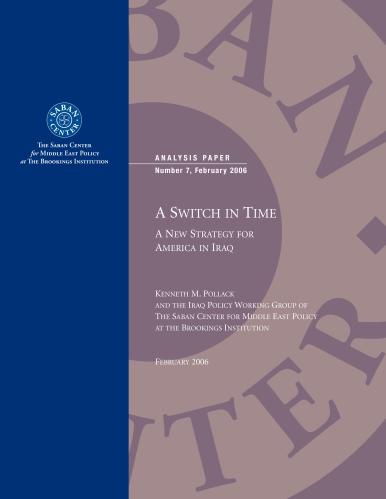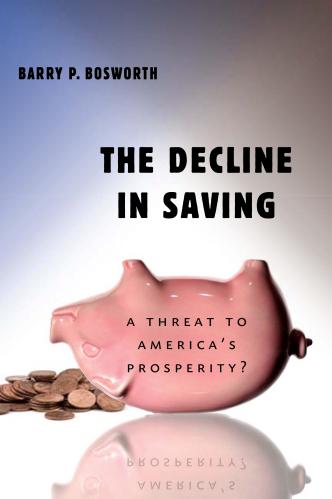In mid-October, the Syrian Democratic Forces—a militia group made up of Syrian Kurds and Arabs, backed by the U.S.-led coalition—re-took the Syrian city of Raqqa, claimed by the so-called Islamic State (ISIS) as its capital. While the significance of Raqqa was always more symbolic than strategic, as Brookings Fellow Chris Meserole has argued, this marked an important turning point in the power of the Islamic State in the Middle East. As the military defeat of ISIL draws closer, Brookings scholars offer recommendations on how to rebuild and stabilize a region that has been devastated by the militant group and other malignant actors for years.
The fall of Raqqa is the start of rebuilding
Brian Reeves and Brookings Senior Fellow Tamara Wittes argue that the United States should beware the consequences of underinvestment in and too swift a disengagement from Raqqa. They explain that while Western officials may be reticent to spend taxpayer dollars to rebuild a country destroyed by a combination of its own brutal leadership and other regional actors, failure to attend to governance, civil society, and restorative justice may recreate the same conditions in Syria that generated the conflict in the first place. They recommend that the United States go beyond short-term stabilization in Raqqa and help its residents protect themselves against future appeals to violence and extremism.
They also suggest the United States and its coalition partners follow certain rules when attempting to stabilize areas previously controlled by the Islamic State. They advise them not to overpromise what they can offer, to allow reconstruction aid to start at a grassroots level, to map stabilization efforts onto existing power relations, to look out for those who would like to interfere with reconstruction efforts, and to respect the power of transitional justice.
Similarly, Brookings Nonresident Senior Fellow Steven Heydemann offers some overarching guidelines for reconstruction in Syria in a way that avoids the same grievances and governance failures that originally generated violence: Bypass Assad’s central government, go local, go small, and go slow.
Everyone wants a piece of the “reconstruction pie”
Various parties are anxious to invest in the reconstruction of Syria, and are being increasingly public about their ambitions. This includes Russia, whose trade delegation stated in 2015 that “Russian companies would lead Syria’s postwar reconstruction” and also Iran, which has encouraged its citizens to buy real estate in Syria. China, Jordan, Lebanon, Turkey, and Oman have also expressed interest in participating in (and profiting from) the reconstruction of Syria.
Brookings Senior Fellow Michael O’Hanlon recommends that other actors take the lead, and explains that he would like to see a space where “multilateral aid organizations and the United States can try to help with reconstruction, in parts of Syria that are not under Assad’s direct control.” This could both create space for “humanitarian relief, but even some beginnings of governance structures.”
Military victories last longer than peace deals
Brookings Senior Fellow Daniel Byman urges the United States and its coalition partners to do all they can to avoid either splintering the Islamic State or giving rise to competing Sunni insurgents. Similarly, Christopher Meserole, a fellow in Foreign Policy, explains that peace deals are more likely to lead to further fighting down the road than military victories. He argues that Iraq must not just regain all Islamic State territory but also destroy the Islamic State as an insurgent group in order to enjoy a stable, long-term peace. Meserole also insists that Iraqi Prime Minister Al-Abadi must bring more Sunnis back into the political process for the country to regain stability.
In Syria, a similar task exists. Meserole explains that the United States and its coalition partners will have to identify Sunni actors who enjoy broad local legitimacy, but were complicit in neither the violence of the Islamic State nor in the atrocities of the Assad regime to invite to play a role in rebuilding the government. However, both Assad and the Islamic State would have targeted any such actors since 2011, making these players difficult to find.
A stronger Kurdistan can help build a stronger Iraq
A strong and stable Kurdistan can help build a stronger Iraq, argues visiting fellow with the Brookings Doha Center Ranj Alaaldin. Alaaldin explains that an equitable power-sharing agreement between the Kurdish government in Erbil and the Iraqi government in Baghdad could allow for a common national framework that would allow the country to prosper, instead of allowing Kurdish statehood aspirations to continuously divide and weaken the already fragile Iraqi state.
The Middle East is not prepared for the return of foreign fighters
The Islamic State has attracted over 40,000 foreign fighters from around the world, with a vast majority coming from the greater Middle East. Daniel Byman observes that the dissolution of the Islamic State could cause these fighters to return to their country, where they might commit violent acts or start insurgent groups.
Regional states are unprepared for these fighters’ return: jails are at capacity; law enforcement cannot keep track of the returnees in many countries; and some states actually sent these disgruntled and potentially violent young men abroad to fight to prevent violence at home.
Support the 10 million displaced persons in Syria
Brookings Fellow Jessica Brandt and Visiting Fellow Robert McKenzie provided recommendations on how to address the more than 10 million people who have been displaced by the conflict in Syria. They recommended that the United States correct and continue its resettlement program by increasing access to education for refugee children in frontline states, expanding access to employment opportunities in frontline states, and collaborating with nongovernmental organizations and fostering collaboration among them.
For more on Syria: https://www.brookings.edu/topic/syria/
For more on terrorism: https://www.brookings.edu/topic/terrorism-extremism/
The Brookings Institution is committed to quality, independence, and impact.
We are supported by a diverse array of funders. In line with our values and policies, each Brookings publication represents the sole views of its author(s).



Commentary
Rebuilding Syria, and the region, after ISIS
December 13, 2017